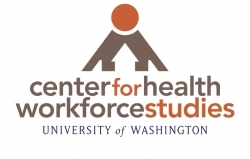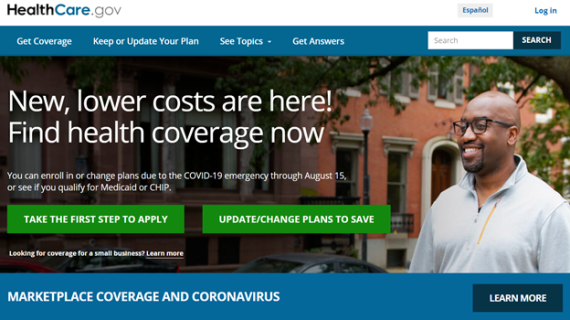The COVID pandemic has helped us appreciate the “essential workers” and shone a light on just how many different kinds of essential health care workers there are. Even then, our health system is so complex that there are still many you may not even know about. It’s now the job of Associate Teaching Professor Marieke van Eijk to share the stories of one of those types of workers: health insurance navigators. These are the people who help others through the complicated world of obtaining, managing, and keeping health insurance. It is challenging for any of us to understand insurance and its elaborate set of rules and jargon. For many folks — including those recently unemployed, working-class people, immigrants, people of color, and those who do not speak English or speak it as a second language — managing health insurance can be a matter of life and death.
With the help of UW’s Center for Health Workforce Studies and thanks to a grant from HRSA — the Health Resources and Services Administration — Dr. van Eijk interviews health care navigators for a few different purposes. One is to give them a voice and help make visible the hard work, rich talent, and endless dedication of this community of workers. Another pertains to answering some of the broader questions of medical anthropology in the context of the contemporary US — what do we expect of health care workers at different levels of the prestige hierarchy? What burdens do we place on people to reduce the health disparities they and their communities are victims of? But there is also a more immediate set of goals: to distill what the needs of navigators are in trying to make their work most effective, to communicate those needs to policymakers at federal, state, and local levels, and to help the navigators effectively advocate for themselves and their clients as they speak to officials, grant agencies, and beyond.
As Dr. van Eijk has learned, navigators need a wide range of skills — familiarity with multiple cultures, communities, and languages, plus knowledge of the arcane rules of insurance and health care, and boundless empathy and patience. Federal funding for navigators was first set up by the Affordable Care Act to reduce the number of people without insurance. However, in 2018 the total budget went down to $10 million from $63 million in 2016, an 84 percent budget cut. These funding cuts, plus shorter enrollment periods and quickly changing marketplace insurance plans, drastically reduced people’s access to navigators. Navigators had to help more people with less time and money and could do less outreach in hard-to-reach communities. Once COVID hit, however, 27 million Americans suddenly found themselves unemployed. Navigators were hit with a tidal wave of new clients, threatening to overwhelm an already fragile system. The American Rescue Plan offers promising help to rebuild the system but is a slow process that requires additional skill sets from the navigators.
This research is but one of Dr. van Eijk’s current research projects — others include work with birth doulas who help pregnant people in underserved communities and with community paramedics and emergency medical responders during COVID. These projects have in common that they address health disparities and seek to improve access to quality, culturally sensitive, and affordable health care. Dr. van Eijk conducts these projects on top of her highly-regarded teaching and service to the department and the field. Which is a good reminder that the list of dedicated health professionals performing critical work includes yet another job category we know well: medical anthropologists.

